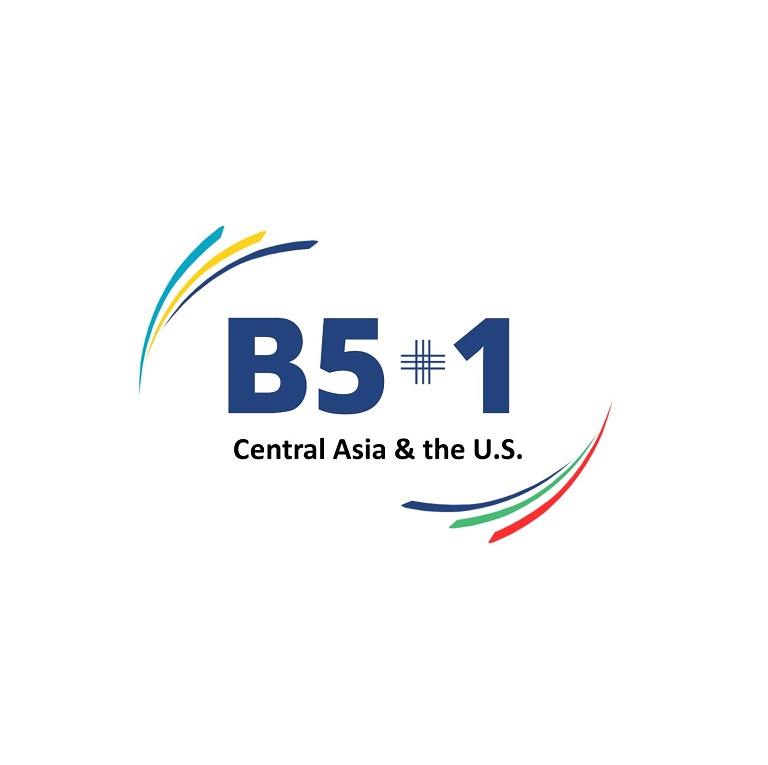
Between 13 and 15 March 2024, Almaty of Kazakhstan became the meeting point for entrepreneurs, investors, policymakers, and specialists from the Central Asian countries and the United States, all of whom had gathered for the B5+1 Forum. The B5+1 Forum was held under the Improving the Business Environment in Central Asia (IBECA) program by the Center for International Private Enterprise (CIPE) and is supported by the US Department of State. The US delegation was led by Deputy Assistant Secretary of State for Central Asian Affairs John Mark Pommersheim and National Security Council Special Assistant to the President and Senior Director for Russia and Central Asia Nicholas Berliner.[1]
The B5+1 Forum is the private sector counterpart of the "C5+1" format, which was initiated in 2015 as a consultation mechanism by the United States and the Central Asian countries at level of the foreign ministers. The C5+1 Summit was held at the presidential level for the first time last year. During that meeting, the New York Declaration was accepted, which underscored a commitment to enhancing the investment and trade landscape for the US private sector.[2]
Ahead of the B5+1 Forum, preparatory work highlighted five priority sectors as likely to be most attractive to international investors and critical for developing regional markets: transport and logistics, e-commerce, tourism, green and renewable energy, and agribusiness.[3] Certain targets were set at the forum, including the elimination of non-geographical transportation and logistics barriers, the adoption of e-CMR, the enhancement regional cooperation in tourism, the execution of interstate e-commerce agreements, the advancement towards green energy, and the establishment of regional cooperation and standards in agribusiness.
The event was a platform for expert and business insights on improving investment climate, emphasizing the importance of regional cooperation and connectivity. Policymakers outlined their strategy for private sector partnership to reach the economic objectives of the region, informed by expert and business community input.
The second day of the forum started with the Dr. Frederick Starr’s opening speech titled "Central Asia and the World". Starr is a prominent academic in the US known in the field of Central Asian Studies and is the founder of the Central Asia-Caucasus Institute and the Silk Road Studies Program. In his speech, Starr reiterated his stance the "Greater Central Asia" concept[4] previously detailed in his 2022 report, “Rethinking Greater Central Asia.”[5] He argued for the extension of Central Asia's boundaries to include Azerbaijan, given its growing integration with the region, and Afghanistan, acknowledging its historical ties. He also suggested for establishing new trade routes through Afghanistan as an alternative to routes through Russia and China. This proposition indicates the US’ desire to engage with the Taliban regime through Central Asian intermediation.
Additionally, the forum addressed the "Global Infrastructure and Investment Partnership" endorsed by the G7 and discussed establishing an intergovernmental business council to boost regional trade and logistics. Consensus was reached on forming B5+1 subgroups focusing on the financial sector, women's entrepreneurship, and rotating the forum's location annually among different countries.
[1] “B5 +1 Forum”, U.S. Department of State, March 15, 2024, https://www.state.gov/b51-forum/
[2] “C5+1 Leaders’ Joint Statement”, The White House, September 21, 2023, https://www.whitehouse.gov/briefing-room/statements-releases/2023/09/21/c51-leaders-joint-statement/
[3] “When B5+1 is More Than 6: Connecting Business for Regional and Global Prosperity”, CIPE, March 4, 2024, https://www.cipe.org/newsroom/when-b51-is-more-than-6-connecting-business-for-regional-and-global-prosperity/
[4] Dr. Frederick Starr on Future of Central Asia and Regional Cooperation, “The Astana Times Youtube Channel”, March 18, 2024, https://www.youtube.com/watch?v=yNTjlVeZTRc
[5] “Rethinking Greater Central Asia: American and Western Stakes in the Region and How to Advance Them”, Silk Road Studies, June 15, 2022, https://silkroadstudies.org/publications/silkroad-papers-and-monographs/item/13454-rethinking-greater-central-asia-american-and-western-stakes-in-the-region-and-how-to-advance-them.html
© 2009-2025 Center for Eurasian Studies (AVİM) All Rights Reserved
No comments yet.
-
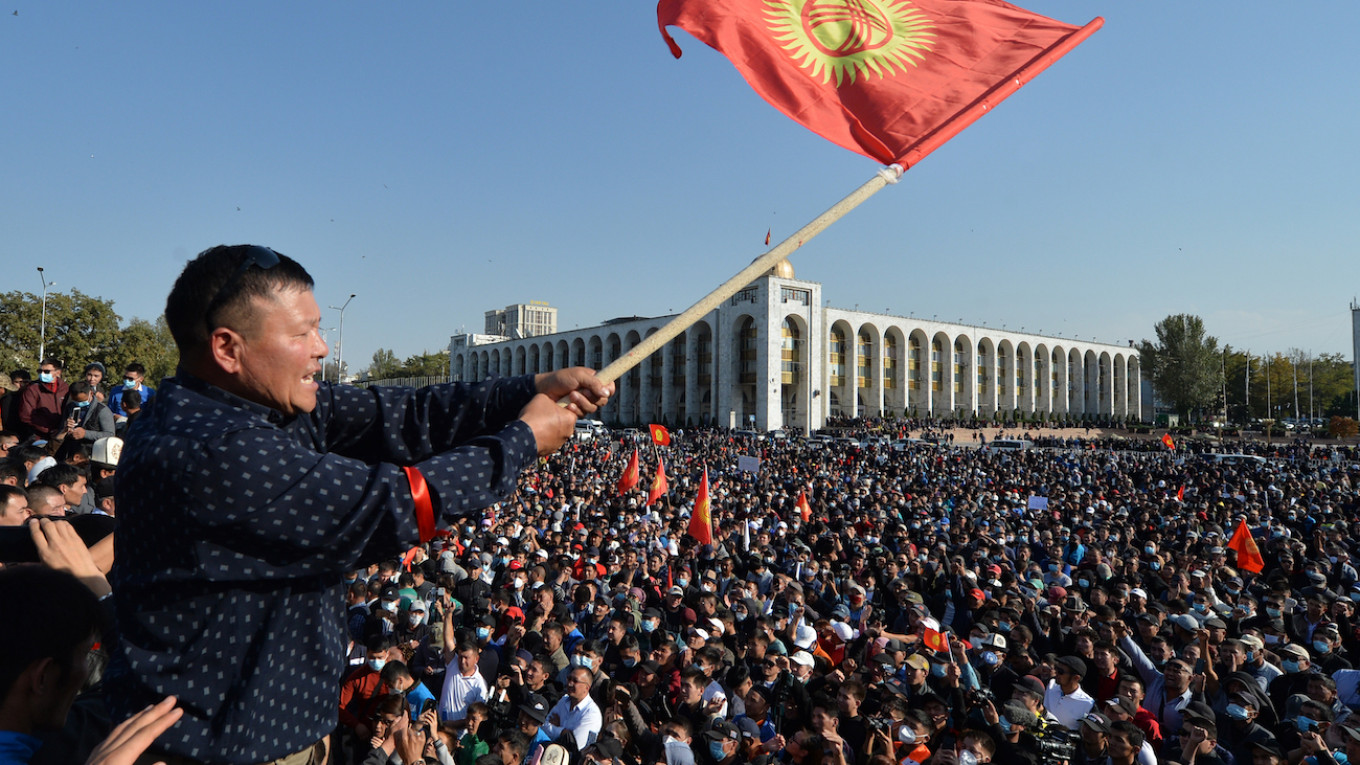 WHAT IS HAPPENING IN KYRGYZSTAN?
WHAT IS HAPPENING IN KYRGYZSTAN?
Gülperi GÜNGÖR 21.10.2020 -
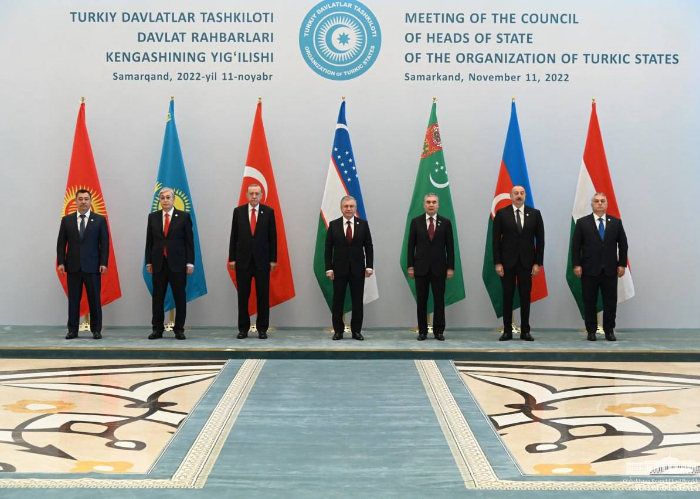 THE SAMARKAND SUMMIT OF THE ORGANIZATION OF TURKIC STATES
THE SAMARKAND SUMMIT OF THE ORGANIZATION OF TURKIC STATES
Gülperi GÜNGÖR 12.12.2022 -
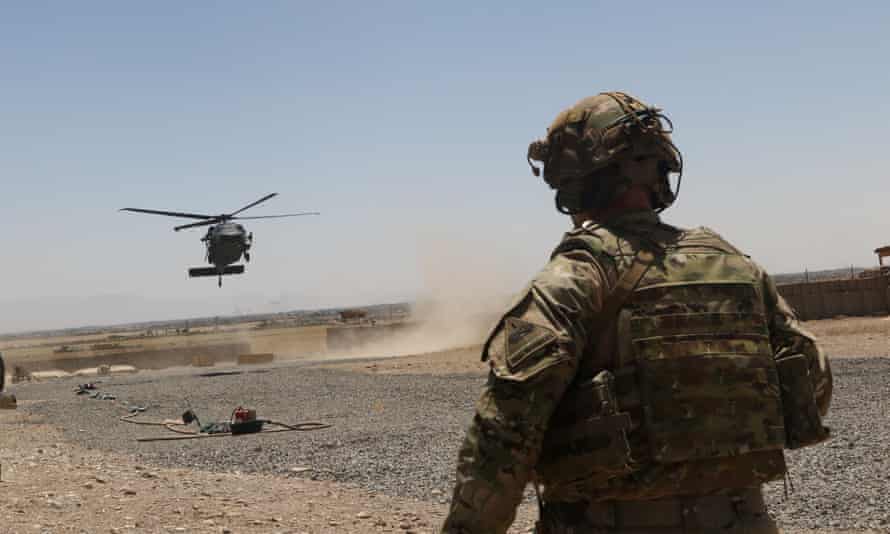 TALIBAN’S ADVANCEMENT AFTER THE WITHDRAWAL OF FOREIGN TROOPS FROM AFGHANISTAN
TALIBAN’S ADVANCEMENT AFTER THE WITHDRAWAL OF FOREIGN TROOPS FROM AFGHANISTAN
Gülperi GÜNGÖR 30.07.2021 -
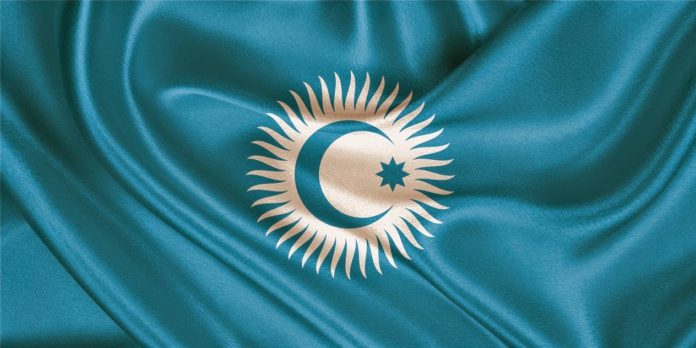 THE FUTURE OF THE TURKIC COUNCIL
THE FUTURE OF THE TURKIC COUNCIL
Gülperi GÜNGÖR 02.03.2021 -
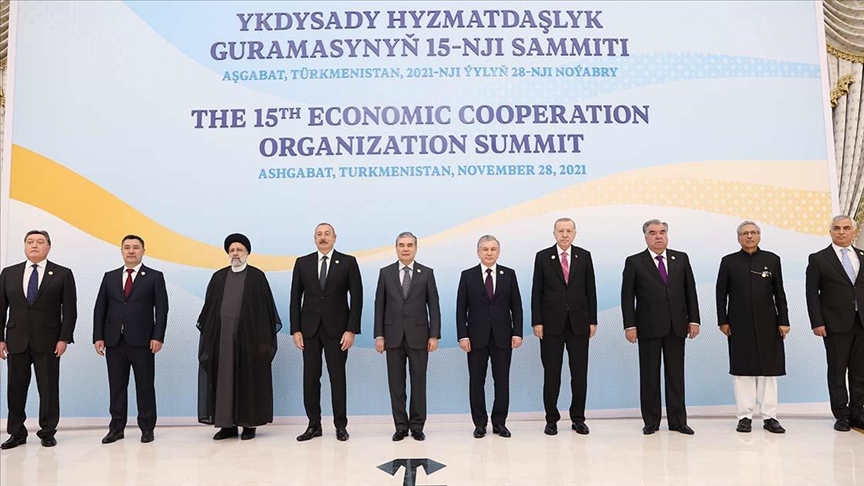 15TH SUMMIT OF LEADERS OF THE ECONOMIC COOPERATION ORGANIZATION
15TH SUMMIT OF LEADERS OF THE ECONOMIC COOPERATION ORGANIZATION
Gülperi GÜNGÖR 14.12.2021
-
 PASHINYAN’S QUEST FOR A NEW CONSTITUTION
PASHINYAN’S QUEST FOR A NEW CONSTITUTION
Turgut Kerem TUNCEL 02.02.2024 -
 PASHINYAN CALLS ON ARMENIAN DIASPORA TO BEHAVE RESPONSIBLY
PASHINYAN CALLS ON ARMENIAN DIASPORA TO BEHAVE RESPONSIBLY
Turgut Kerem TUNCEL 04.10.2024 -
 ARMENIAN MYTHS ARE DOOMED TO FAILURE: THE TRUTH WILL PREVAIL
ARMENIAN MYTHS ARE DOOMED TO FAILURE: THE TRUTH WILL PREVAIL
AVİM 17.08.2017 -
THE BALKANS – EU – TURKEY
Alev KILIÇ 03.10.2012 -
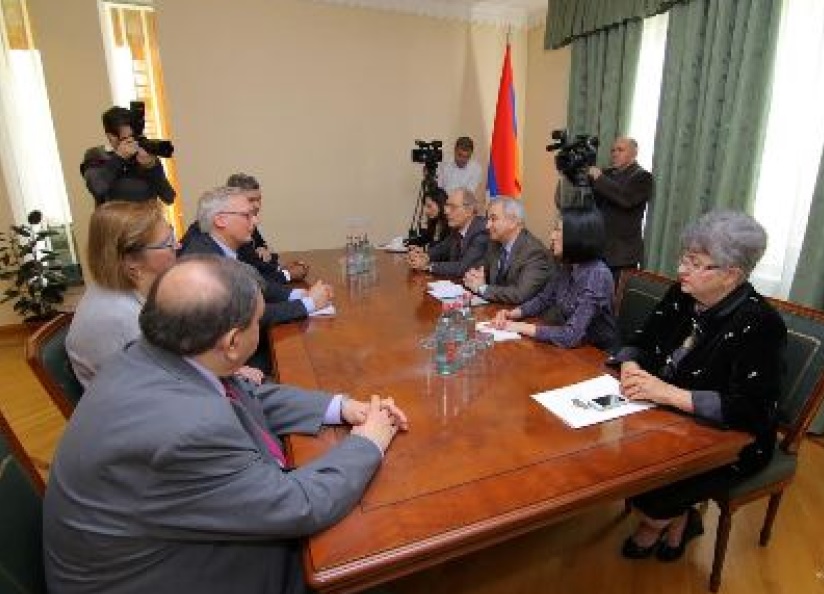 ARMENIAN ATTEMPTS FOR THE RECOGNITION OF NAGORNO KARABAKH AND BELGIAN PARLIAMANTERIANS’ VISIT TO STEPANAKERT
ARMENIAN ATTEMPTS FOR THE RECOGNITION OF NAGORNO KARABAKH AND BELGIAN PARLIAMANTERIANS’ VISIT TO STEPANAKERT
Aslan Yavuz ŞİR 27.03.2017
-
25.01.2016
THE ARMENIAN QUESTION - BASIC KNOWLEDGE AND DOCUMENTATION -
12.06.2024
THE TRUTH WILL OUT -
27.03.2023
RADİKAL ERMENİ UNSURLARCA GERÇEKLEŞTİRİLEN MEZALİMLER VE VANDALİZM -
17.03.2023
PATRIOTISM PERVERTED -
23.02.2023
MEN ARE LIKE THAT -
03.02.2023
BAKÜ-TİFLİS-CEYHAN BORU HATTININ YAŞANAN TARİHİ -
16.12.2022
INTERNATIONAL SCHOLARS ON THE EVENTS OF 1915 -
07.12.2022
FAKE PHOTOS AND THE ARMENIAN PROPAGANDA -
07.12.2022
ERMENİ PROPAGANDASI VE SAHTE RESİMLER -
01.01.2022
A Letter From Japan - Strategically Mum: The Silence of the Armenians -
01.01.2022
Japonya'dan Bir Mektup - Stratejik Suskunluk: Ermenilerin Sessizliği -
03.06.2020
Anastas Mikoyan: Confessions of an Armenian Bolshevik -
08.04.2020
Sovyet Sonrası Ukrayna’da Devlet, Toplum ve Siyaset - Değişen Dinamikler, Dönüşen Kimlikler -
12.06.2018
Ermeni Sorunuyla İlgili İngiliz Belgeleri (1912-1923) - British Documents on Armenian Question (1912-1923) -
02.12.2016
Turkish-Russian Academics: A Historical Study on the Caucasus -
01.07.2016
Gürcistan'daki Müslüman Topluluklar: Azınlık Hakları, Kimlik, Siyaset -
10.03.2016
Armenian Diaspora: Diaspora, State and the Imagination of the Republic of Armenia -
24.01.2016
ERMENİ SORUNU - TEMEL BİLGİ VE BELGELER (2. BASKI)
-
AVİM Conference Hall 24.01.2023
CONFERENCE TITLED “HUNGARY’S PERSPECTIVES ON THE TURKIC WORLD"









